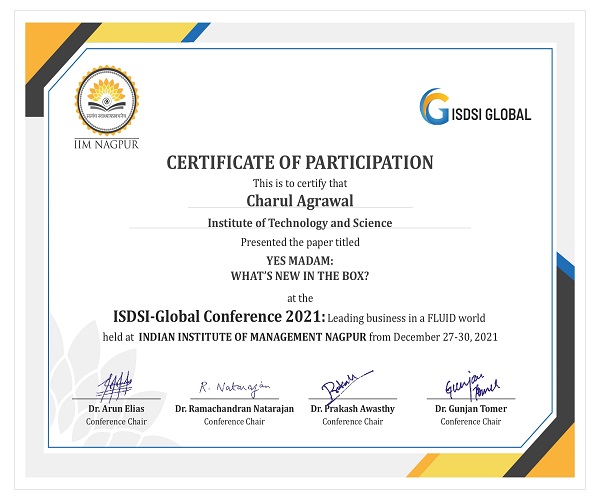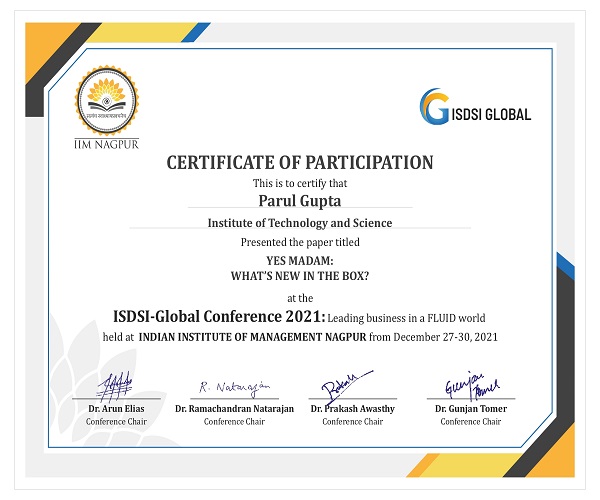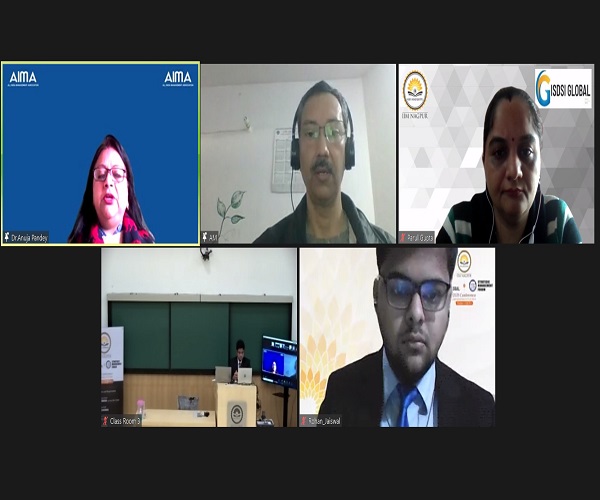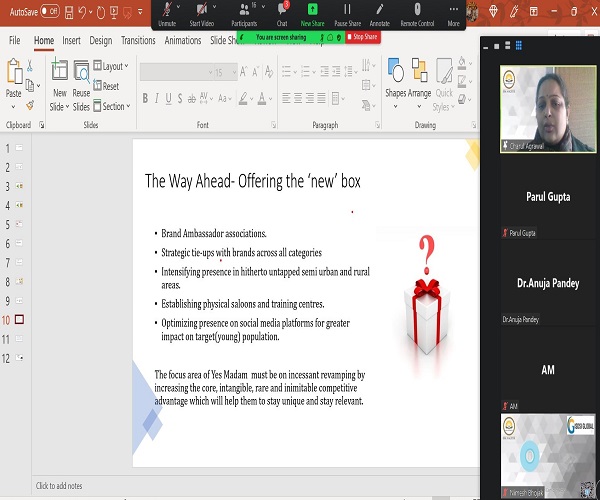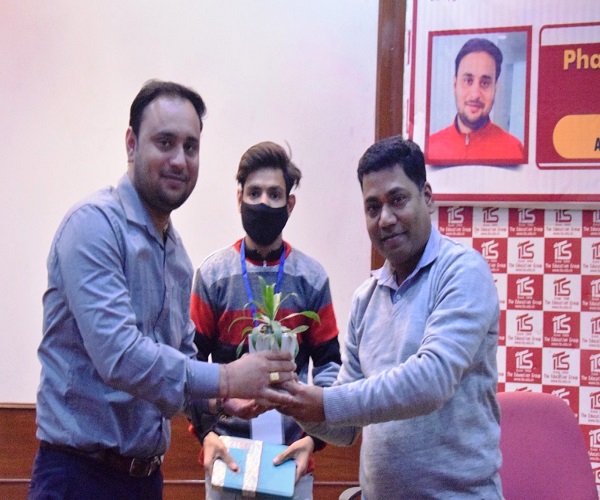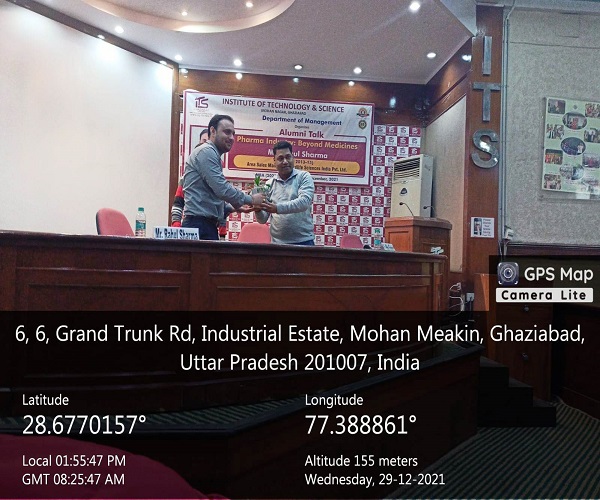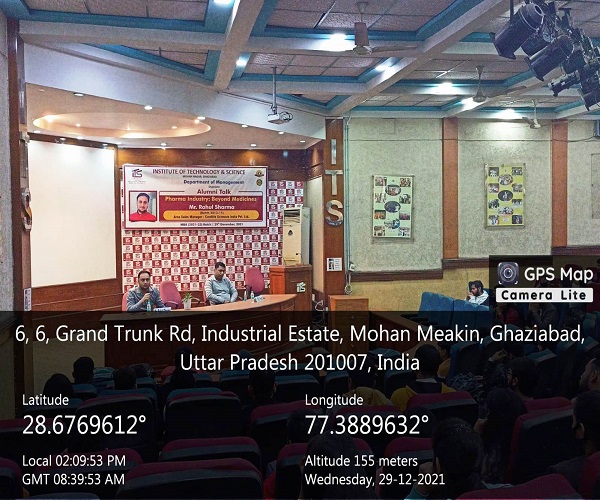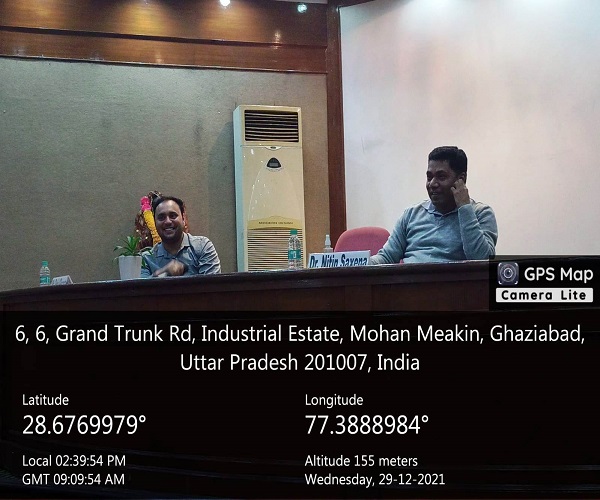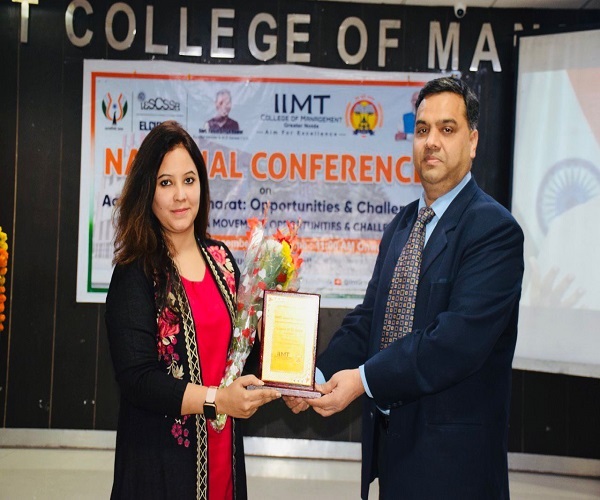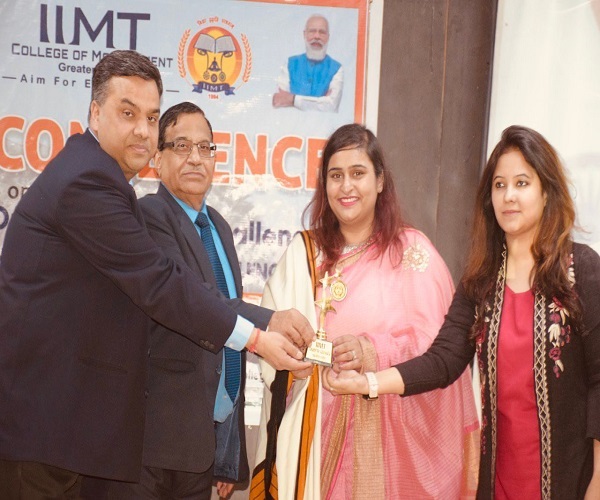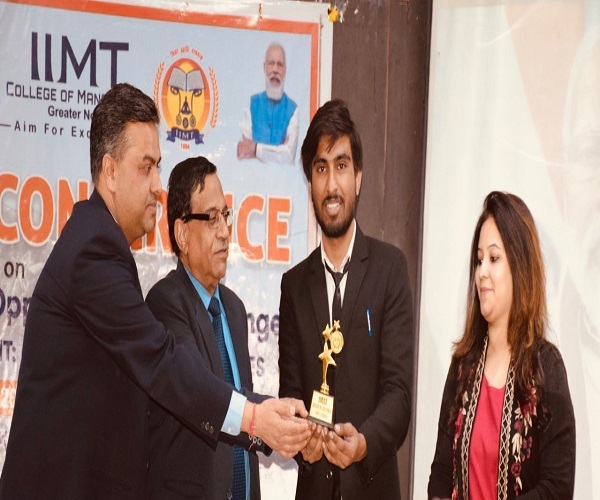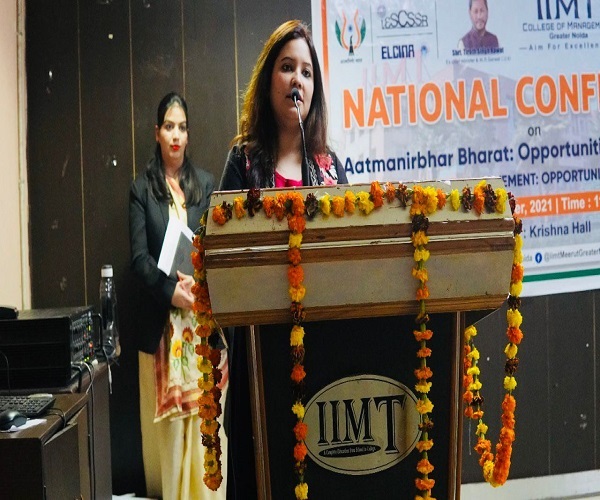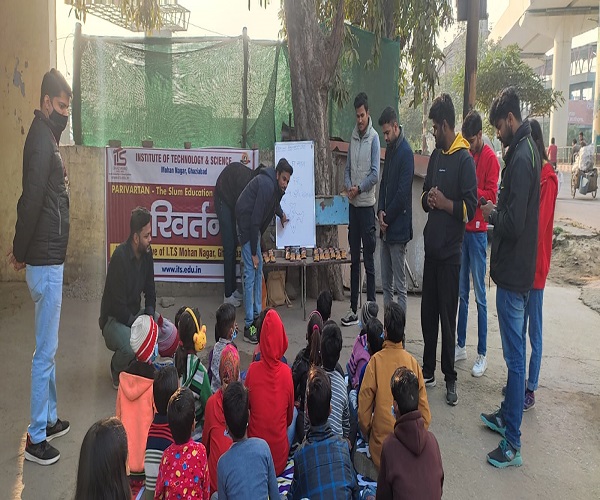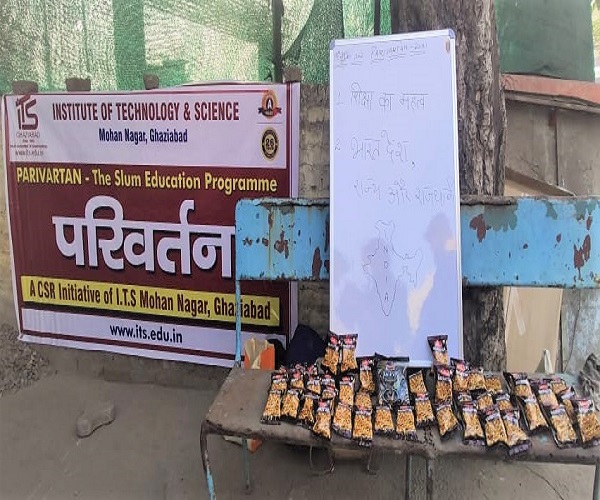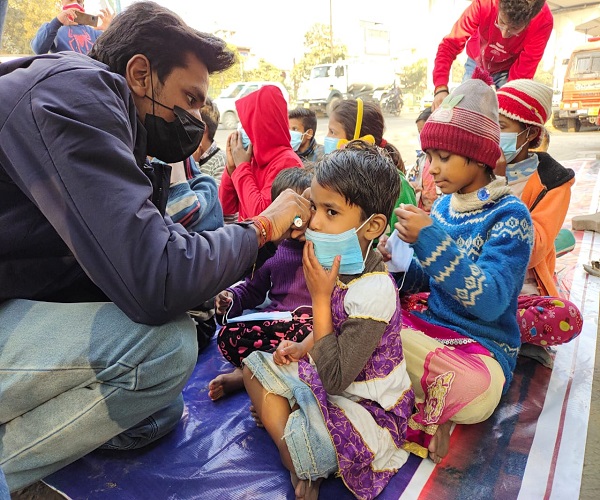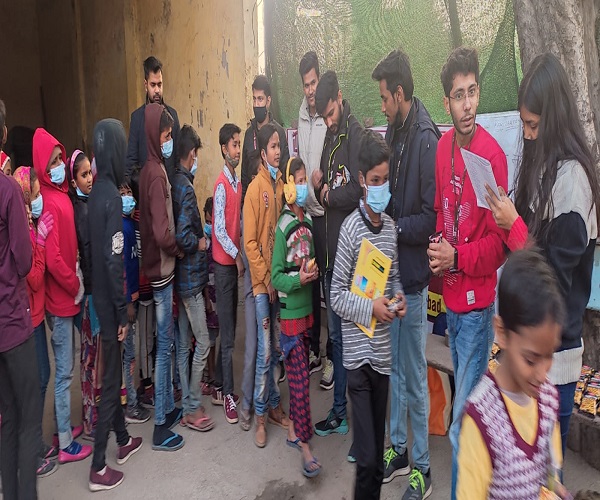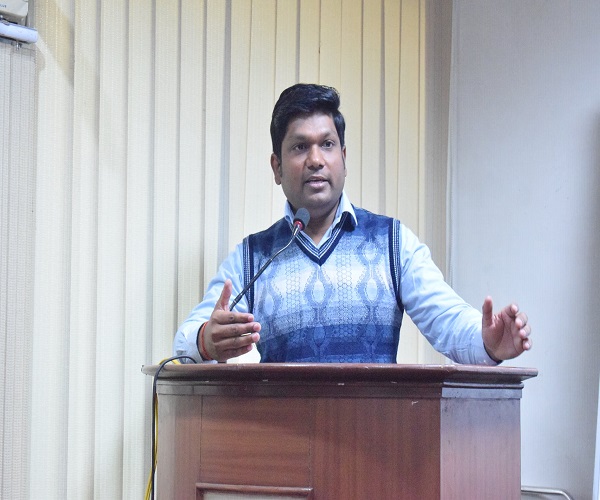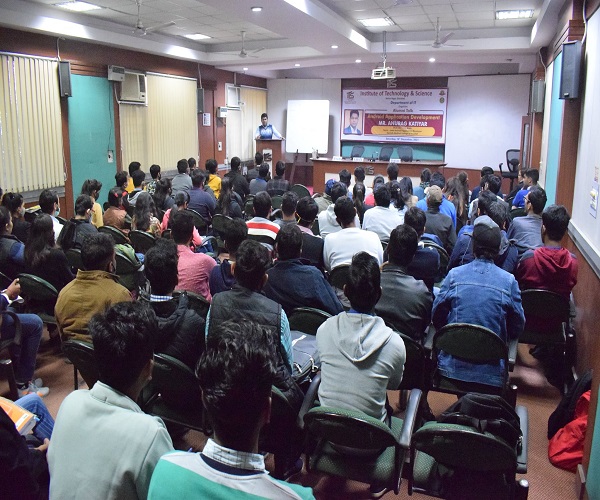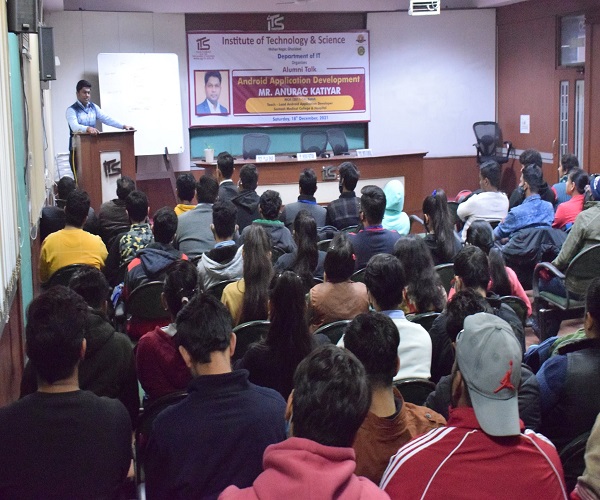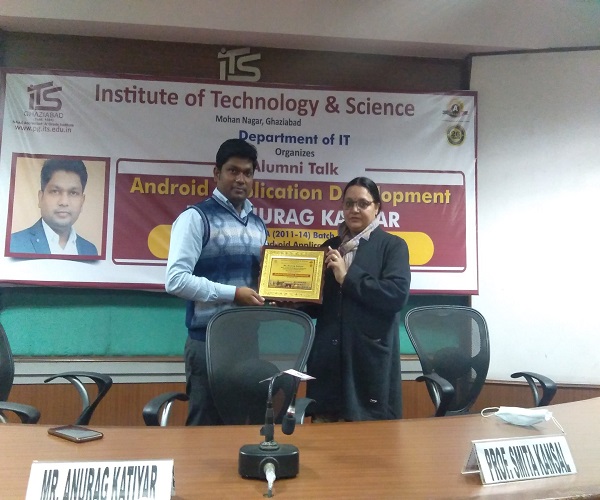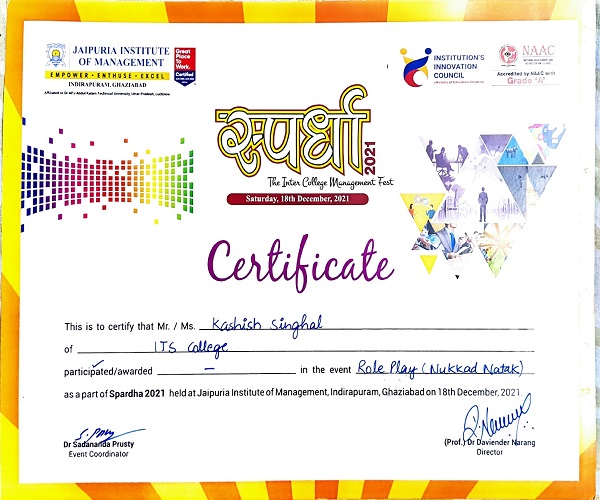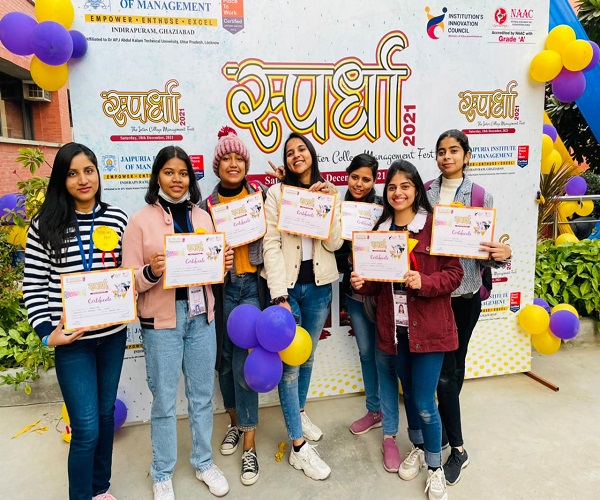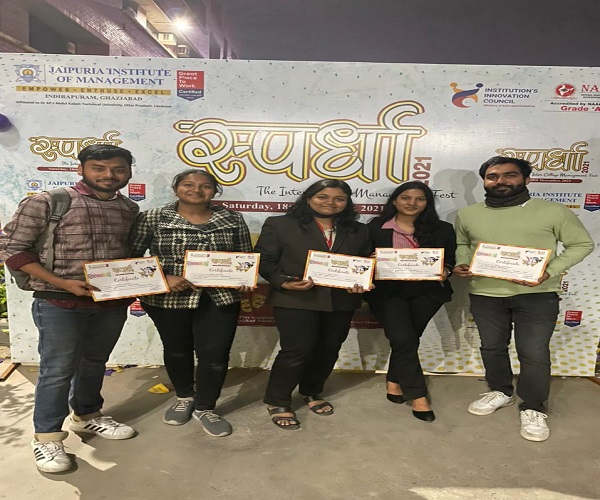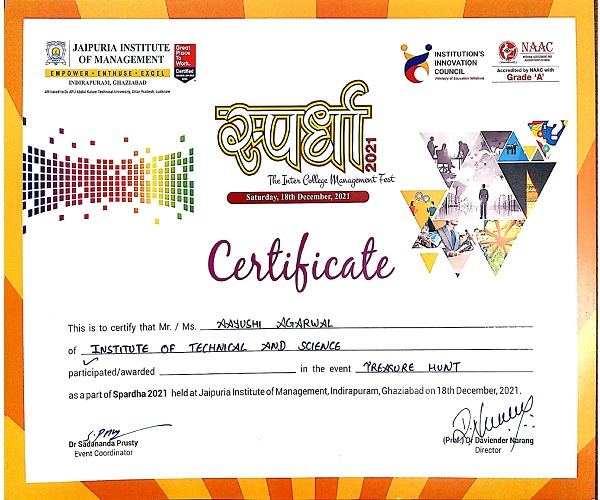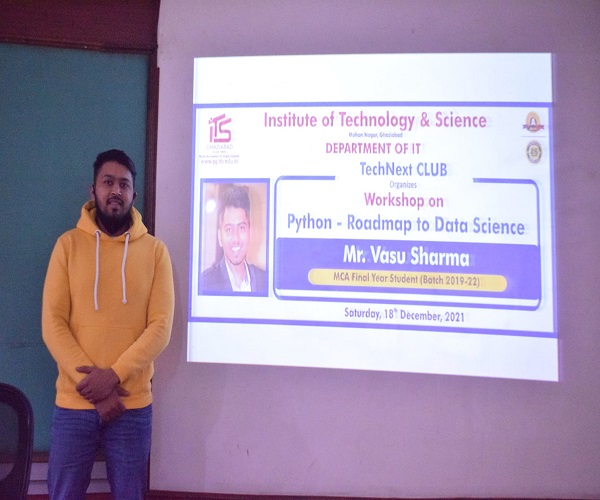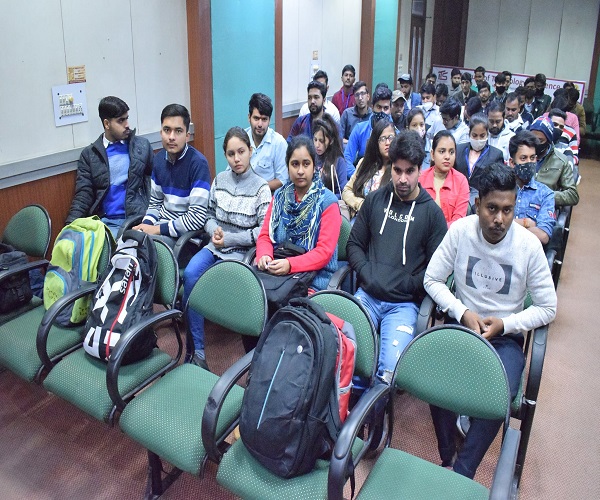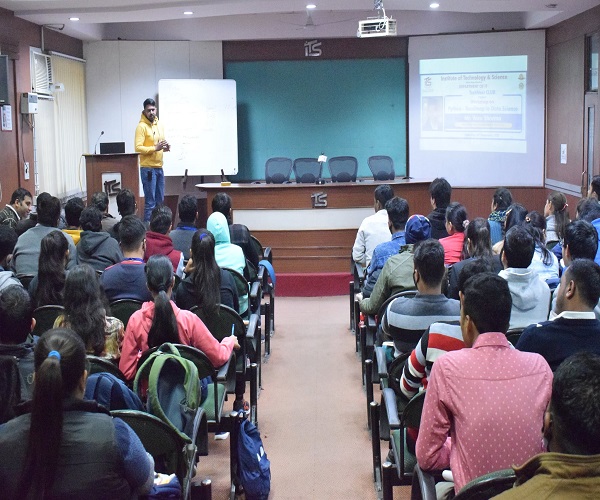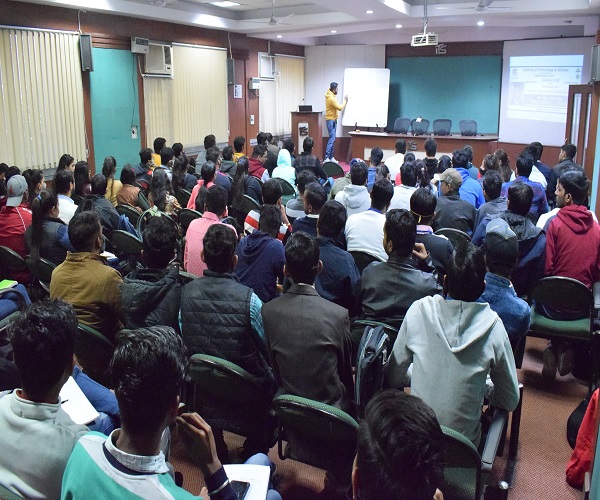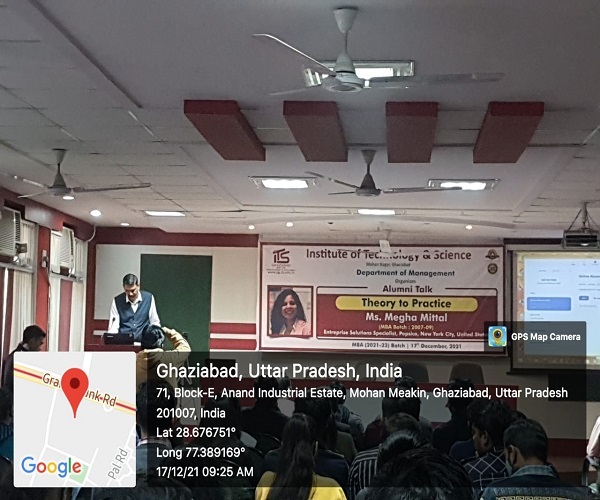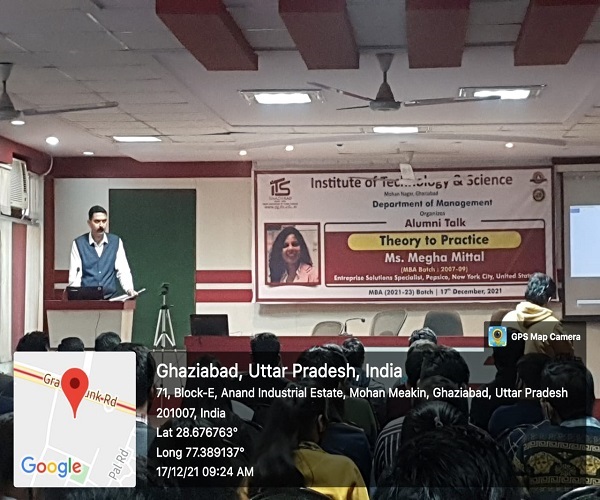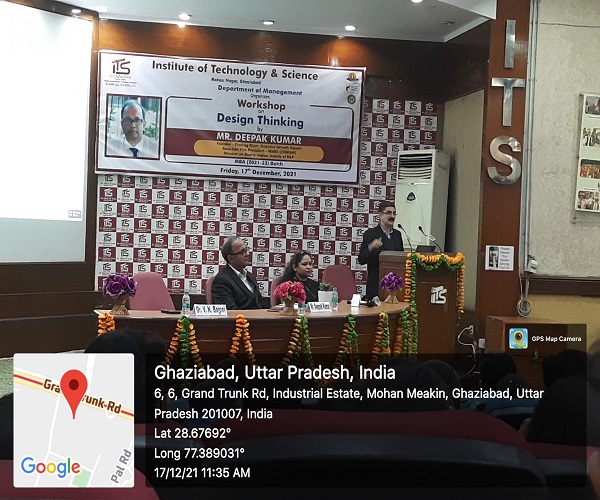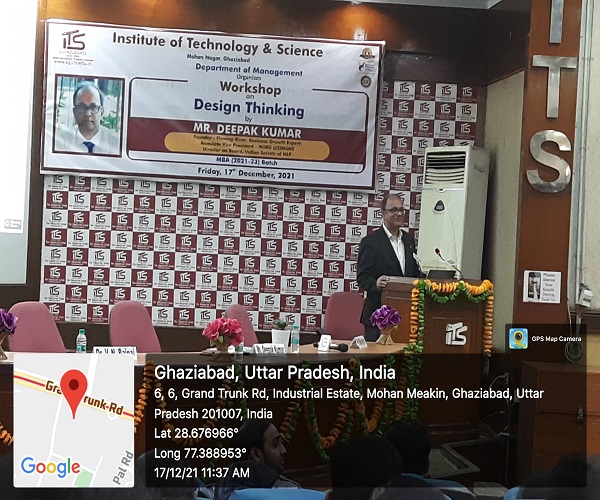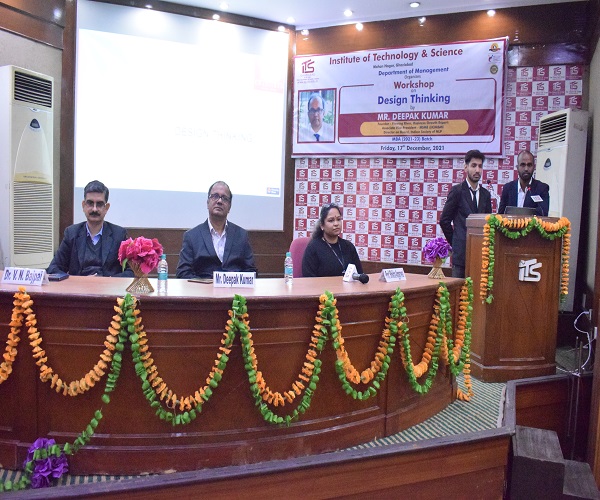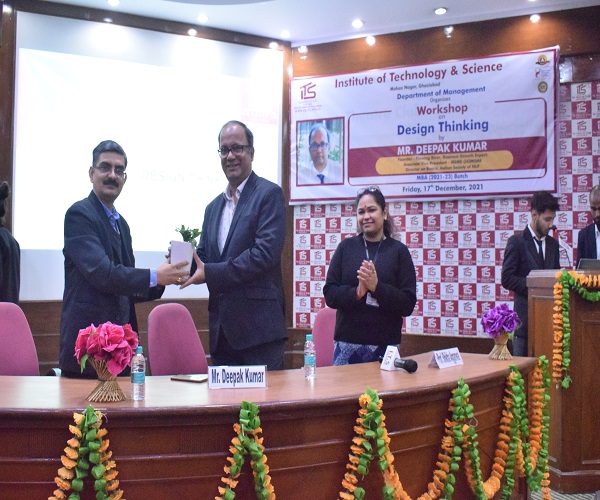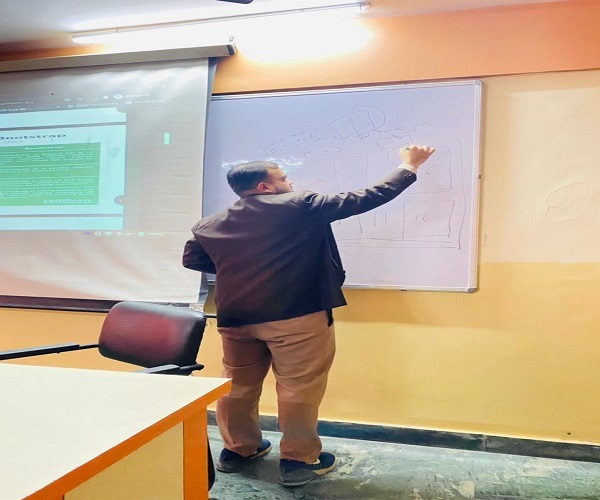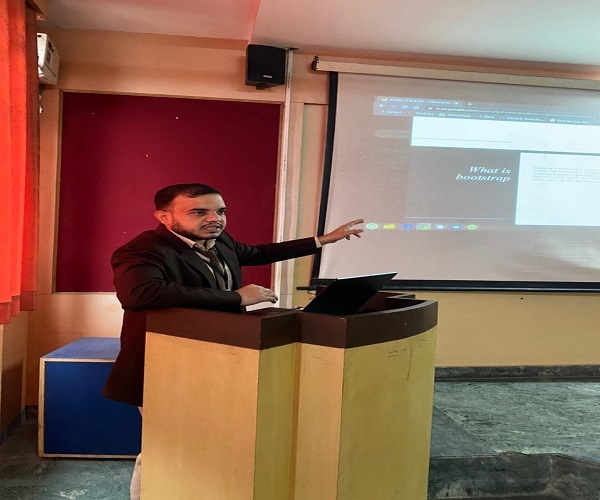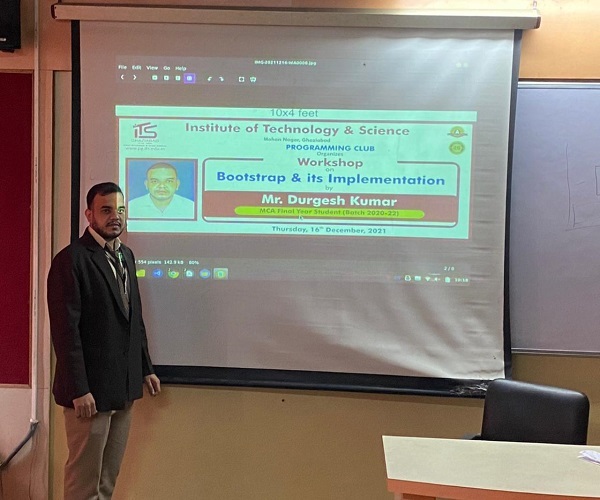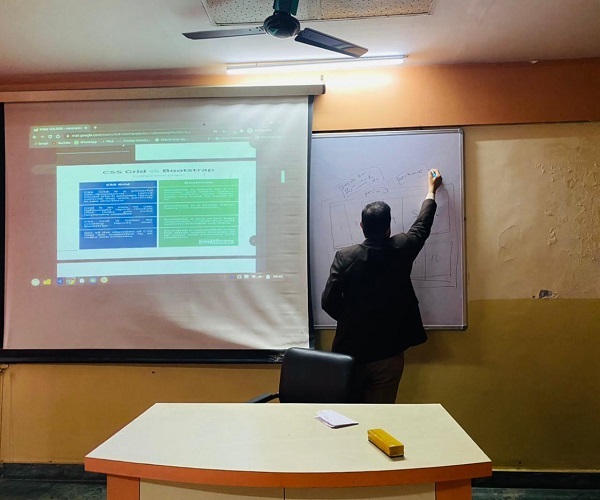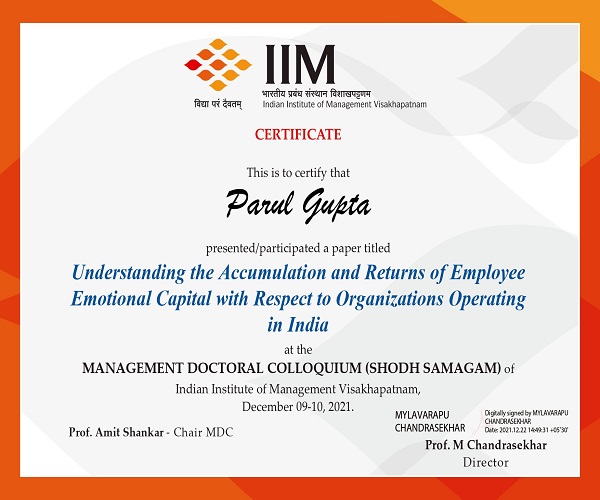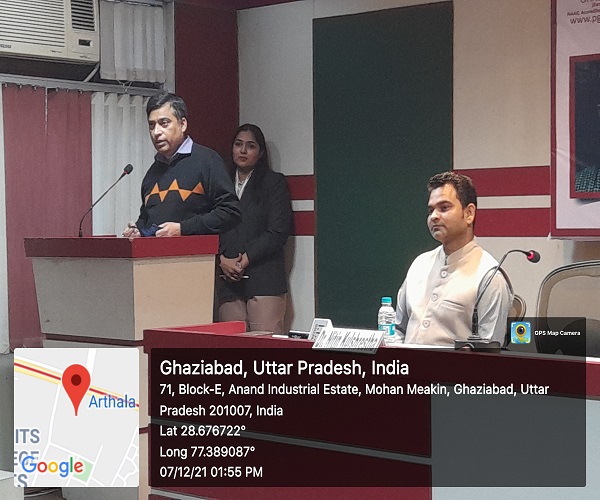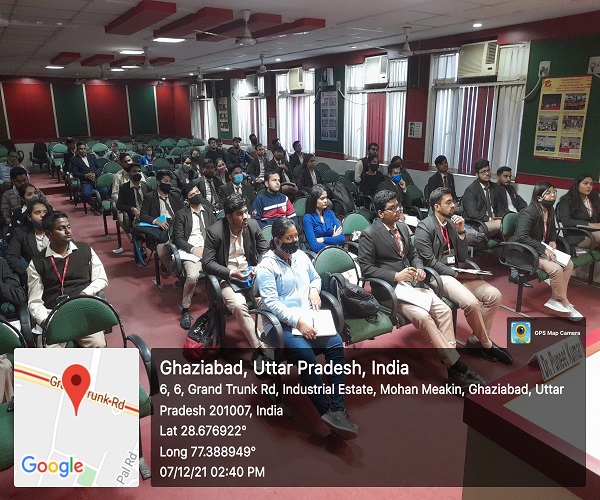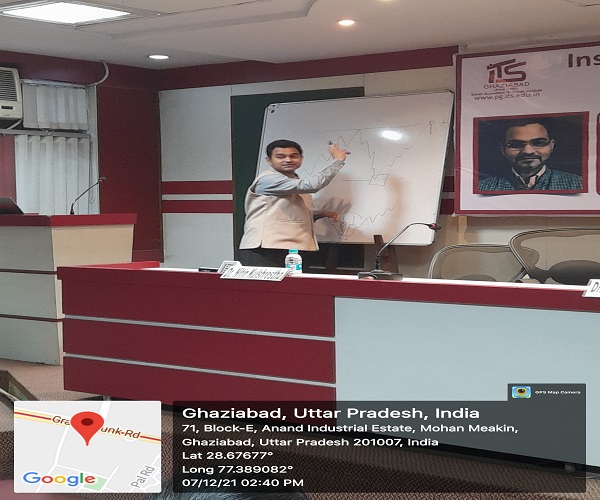Management Faculty presented case titled “Yes Madam: What’s new in the Box” at IIM Nagpur
30-12-21
Prof. Charul Agrawal and Prof. Parul Gupta of Management Department from I.T.S Ghaziaabd successfully presented their case study titled “Yes Madam: What’s new in the Box” in the ISDSI-Global Conference 2021 from December 27-30, 2021 at IIM Nagpur.
This four-day conference witnessed participation from many countries and many prestigious Institutes of India. The case study was selected in the category of Teaching cases and was related to the subject of Strategic Management.
The jury panel consisted of eminent educationists like Dr. Anuja Pandey Head, AIMA -India Case Research Center, Professor of Marketing AIMA and Dr, Prof Siva Kumar Professor Marketing VITBS, Allur.
The case authors received valuable inputs for improvements and were appreciated for the concept built around the case.
MBA Alumni Talk on Pharma Industry: Beyond Medicines
29-12-21
I.T.S Mohan Nagar, Ghaziabad , Department of Management organised an Alumni Talk by Mr. Rahul Sharma, Area Sales Manager, Cordlife sciences India Pvt Ltd. and alumnus of MBA 2013-15 Batch on 29th December, 2021.
The session was started with the welcome address of Prof. Nitin saxena In his address, he talked about the importance of alumni for an institute. He talked about strengthening the alumni connection.
Mr. Rahul Sharma discussed various parameters on which students should work upon for getting a good job in future. He discussed his success mantras which one should develop like soft skill, as they were the first most priority in every sector for each opportunity in corporate world, also he asked students to focus on Communication skill and
His session was focused on the opportunities available in the pharmaceutical industry. He talked about his profile in his company and his key responsibilities for which he is responsible.
Mr. Rahul also shared his life experience of how to tackle the worst situation, by being self motivated & calm as the satisfaction comes from peace not from money.
He discussed that students feel that opportunities in the pharmaceutical industry are limited to medicines only. He elaborated that in the pharmaceutical industry many opportunities are available beyond medicines.
The session ended with the presentation of a virtual plaque as a token of gratitude and remembrance to the speaker.
Utthan Club Activity -“Christmas Celebration”
24-12-21
Utthan, A CSR initiative of Department of Management at I.T.S - Mohan Nagar, Ghaziabad organised a session based on the theme of “Christmas" for the government school students of class 1st to 10th in the campus on 24th December, 2021.
The aim of the activity was to resume the Utthan club activities that could not happen for the past two years due to Covid-19 Pandemic. Team Utthan aimed to enhance the knowledge and confidence of the children. Rhyme competition was conducted for the students of 1st to 5th standard and for students of class 6th to 10th, an Extempore Competition was conducted.
Faculty Coordinators, Prof. Nitin Saxena and Prof. Shilpi Rana started the activity by addressing the students and motivated them for upcoming club activities. Santa caps were distributed among the children and winners of the rhyme and extempore competition were awarded with exciting gifts. They seemed to be quite enthusiastic after visiting the campus for so long.
Students were given refreshments at the end of the session.
Management faculty invited as a Guest
23-12-21
Management faculty, Prof. Shilpi Rana was invited as a Guest in the Valedictory Session of a 2-day "National Conference" on Atma Nirbhar Bharat - Opportunities & Challenges, organised by IIMT College of Management, Greater Noida on 23rd December, 2021.
The session witnessed 200 above participants from Management background including Faculty members, Research Scholars and students. The session was full of enthusiasm & Zeal among participants to present their research papers during the Conference.
It was a pleasure being invited as Guest to present the awards to the winners. Overall It was a wonderful learning experience. The Faculty is Grateful to the Management of I.T.S Ghaziabad for giving such opportunities and to be a part of such events for self exploration and learning.
Parivartan’ – The Slum Education Programme
19-12-21
I.T.S - Mohan Nagar, Ghaziabad resumed the full-fledged ‘Parivartan- The Slum Education, Programme’, a CSR initiative of the Management Department on the 19th of December, 2021.
The proceedings were kicked off by the student volunteers, as they re-familiarised the students with the importance of studies. They impressed on the kids how it would help them to take care of familial obligations; how it would enable them to make better decisions in different aspects of life; and in general how it would allow them to improve the quality of their life. Volunteers effectively used the storytelling approach to get the pupils actively involved in the learning process.
Student volunteers tried to evoke national pride as he tested the knowledge of the young ones regarding their country. Starting with the states and their capitals, the interactions proceeded to the national symbols like the national animal, national bird, and the national song.
The little ones impressed all with both their knowledge and power of recall. In an effort to drum up energy further, the volunteers engaged the children in a game to test their alertness. At Parivartan, it is after all something of a tradition to use games to promote learning with fun.
A notable occurrence was the distribution of face masks among the children, with the volunteers reminding them “Do gaz doori, Mask hai zaruri".
Following past practice, a quiz was conducted to test the learnings of the day, with those answering correctly being rewarded with toffees.
Finally, refreshments were distributed to all the children.
Alumni Talk
18-12-21
The objective of this talk was to have the interaction of Alumni with their alma mater and also to bridge the gap between academia and the corporate world.
Department of I.T, I.T.S, Mohan Nagar, Ghaziabad organized an Online Alumni Talk on “Android Application Development” for the students of MCA Programme on 18th December, 2021. Prof. Puja Dhar, Chairperson-MCA & Prof. Smita Kansal, Coordinator-MCA welcomed and thanked Mr. Anurag Katiyar for spearing the time from her busy schedule to conduct this session.
During his talk Mr. Katiyar discussed about the introduction to android, version of Android, Basics of Android, upcoming technologies, opportunities for android developers in today’s market. He advised students to work on the basic fundamentals of all the subjects they are studying during their course.
Mr. Katiyar also gave some important tips to his alma mater which will be required during the interview. This talk had updated the knowledge of students regarding new technologies & its role in the corporate world.
Overall, the online talk was full of learning for the students.
MBA participants participation in Spardha - 2021
18-12-21
Participants of MBA , Institute of Technology & Science, Mohan Nagar Ghaziabad won 3rd Prize in Treasure Hunt Competition at an inter-college management fest ‘Spardha’ organized by Jaipuria Institute of Management, Ghaziabad.
The fest had a series of extravagant events like Treasure Hunt, Role Play – Nukkad Natak, PITCH – Business Plan Competition, ADVERT – ADMAD Show, Debate - A War of Words, where more than 315 participants and 87 teams from 30 colleges in Delhi-NCR participated.
42 participants from MBA batch participated in teams in all the above events. The participants showed their creative, intellectual and artistic skills in different communication and performance-based activities.. The debate competition team too generated fire among the people with their spot-on thoughts on topics such as nuclear power etc. Our teams participated in fun and exciting sessions of ADMAD show and Treasure Hunt. The whole event was a test of our presence of mind and physical strength.
In the Treasure Hunt event, the team of MBA20-22 batch comprising of Sparsh, Shallu, Kanak, Ayush and Somya won the 3rdprize. Towards the end of the event all the participants were felicitated with participation certificates.
workshop on Python- Road to Data Science
18-12-21
The objective of the workshop was to make students of MCA 1st year aware of Python and its basic fundamentals and boost the confidence of Senior students who are ready to share their knowledge with juniors.
TechNext Club of the Department of IT organized a workshop on "Python- A Roadmap to Data Science" for the MCA-1st Semester Students on 18th December 2021. Mr. Vasu Sharma, MCA Final Year Student was the speaker of this workshop. He very nicely covered the basics of Python and also addressed many queries of the students regarding Python & Data Science. During the workshop Faculty Coordinators of TechNext Club Prof. Puja, Dhar, and Prof. K.P Singh were also present. Chairperson MCA, Prof. Puja Dhar appreciated the student of the MCA final year who took this initiative to take a workshop on emerging technologies for their juniors. Prof. K.P Singh also wished all the students for their future endeavors
Online Alumni Talk on “Theory to Practice” by Ms. Megha Mittal for MBA (2021-23) batch students
17-12-21
An online Alumni Talk by Ms. Megha Mittal, Enterprise Solutions Specialist, Pepsico, New York City, United States and Alumnus of MBA (2007-09) was delivered on 17th December, 2021.
The session was organised for MBA 2021-23 Batch.
The Talk was started with the welcome address by Prof. Durba Roy, Head CRC followed by address of Dr. D.K. Pandey, Chairperson – Alumni Committee. The Topic of the talk was “Theory to Practice”. The purpose of organising the talk was to get participants aware about the Gaps between theory knowledge or classroom knowledge and knowledge required for Industry opportunities.
Ms. Megha Mittal talked about her journey from management trainee to her current post at Pepsico. She started her talk by asking a few questions to the students 1. What is your aim of doing MBA, 2. Have you planned the path to achieve your aim, 3. Have you identified your weaknesses which will become hurdles in achieving your aim etc.
She discussed that she has faced lots of issues and hurdles for pursuing her job in a different country, having a different work culture. She also discussed how she has overcome her weaknesses and become successful in her career. She discussed the importance of communication for achieving a successful career and stable job. In the end Dr. D.K Pandey gave a virtual plaque to Ms. Megha Mittal as a token of regards on behalf of the institute.
Workshop on “Design Thinking” for the participants of MBA batch 2021-23
17-12-21
The Department of Management organized “Workshop on Design Thinking” for the participants of MBA batch 2021-23 on 17th December, 2021.
Design thinking has become an essential part of business decision making in present times. To keep abreast with the increasing utility and applications of design thinking in management decision making, the workshop was planned.
The resource person for the workshop was Mr. Deepak Kumar, Founder- Flowing River, Business Growth Expert: Associate Vice President - MSME @CIMSME, Director on Board, Indian Society of NLP. The resource person began the workshop with some interesting and engaging examples showing design thinking in our day-to-day life. He also enlightened the participants about how we, unconsciously, use creativity and design thinking in our life. The importance of creative thinking and creative problem solving was also discussed.
Further into the session, the resource person talked about user- experience design and how companies have to focus on the process of design thinking including empathy, define, ideate, prototype and test in order to provide user the experience that matters. Then he shared some very interesting cases upon which he explained how design thinking helped the companies to become more productive and efficient and transformed their products and services to fit the customer needs better. He also gave practical exercises to perform in which all students enthusiastically participated and enjoyed. Lastly, he clarified doubts and handled participants’ queries to end the workshop on a conclusive note.
The workshop was well- organized, stimulating, participative and students learned the practical application of design thinking well.
Binary (IT & Operations) club organized the activity “Techno Master” for MBA(2021-23) Batch
17-12-21
I.T.S Mohan Nagar Ghaziabad, organized an activity “Techno Master” for MBA 2021-23 batch students on December 17th, 2021.
The objective of the activity was to enhance the knowledge related to current scenarios and technical changes in digital world.
The activity consist dual rounds which were organized through online as well face to face participation.
Total 5 members were selected from all 16 participated students .There were 15 questions asked in the buzzer round from all five participants and who gives correct answers were awarded 10 Marks . Each individual have to press the buzzer as soon as possible and answer the basic technical questions. Winner of the Activity Were- Mansi Verma , Rajnish Kumar & Vikas Tripathi
Activity was concluded with vote of thanks by Faculty Coordinator Prof. Mansi Singh. The Winners were felicitated with certificates. The activity was a great success where students enjoyed a lot along with fun and learning and extra privileges also given to the audience sitting over. A random question round is also arranged for them for their learning and experience enhancement and appreciated them with small gifts.
workshop on bootstrap
16-12-21
Objective of the workshop was to impress upon the students the need of developing a theoretically and practically sound curriculum with strong “Bootstrap “concepts.
Programming club of Department of IT organized one day workshop for MCA Second year Students. The session was conducted by Mr.Durgesh Kumar, student of MCA final year. In this workshop students acknowledged a complete knowledge of Web Technology . Web technology refers to the means by which computers communicate with each other using markup languages and multimedia packages. It gives us a way to interact with hosted information, like websites. Web technology involves the use of hypertext markup language (HTML) and cascading style sheets (CSS), XML, PHP and many more. Bootstrap is the most popular HTML, CSS, and JavaScript framework for developing responsive, mobile-first web sites. Bootstrap is completely free to download and use.
The key points that were enclosed in the workshop were:
- Introduction of HTML
- CSS
- Types of CSS
- Javascript
- Bootstrap
- How to install Bootstrap
- How to design pages in Bootstrap
In this workshop the students were introduced to topics in Web Technology. Students got an idea how to create web pages All the students really appreciated the contents that were discussed, they realized that interactions likes these can help them improve their learning. Students showed keen interest in attending more workshops like this in future
Management Faculty participated and presented research paper in Management Doctoral Colloquium (Shodh Samagam ) at IIM- Vishakhapatnam
10-12-21
Prof. Parul Gupta, Faculty of Department of Management at I.T.S Ghaziabad, participated and presented a
Paper titled ‘Understanding the accumulation and returns of employee emotional capital with respect to organizations operating in India’ in Management Doctoral Colloquium (Shodh Samagam) organised by IIM – Vishakhapatnam dated December 9-10, 2021. It was a two days virtual event where out of 250 entries, 50doctoral scholars from premier institutes across India were selected to present their research works.
The objective of the colloquium was to create a platform for research scholars can seek knowledge, learn new research techniques, and receive feedback from eminent academicians. The colloquium offered constructive feedback and insightful comments to the research scholars for enhancing their research and making valuable contribution to their respective domains.
Inception ’21- MBA Fresher Party
10-12-21
Management Department at I.T.S Mohan Nagar Ghaziabad organised Inception 21 Fresher Party to welcome new Batch of MBA 2021-23 on 10th December 2021.
The program commenced with ceremonial lamp lighting and Ganesh Vandana performed by MBA-II Year Students.
Shri. Surender Sood , Director-PR , I.T.S-The Education Group congratulated all the students in the new journey they have undertaken. He further stated that hard work and perseverance are the keys to success. Dr. V.N Bajpai Director MBA and Dr. Surendra Tiwari, MBA Chairperson also blessed the new batch.
The event witnessed some enthusiastic performances by the 2020 and 2021 batch. Group dances and Fashion shows were spectacular and simply mesmerised the audience.
Mr. Anuj Gupta and Ms. Lavisha Malkani were crowned as Mr. Fresher and Ms. Fresher respectively.
The program was a huge success as it gave a great opportunity to both the batches for interaction as well as provided a platform for the new batch to showcase their talents. The program ended with gift distribution and high tea.
Workshop on “Technical Analysis of the Stock Market” for MBA students
07-12-21
Institute of Technology & Science (I.T.S), Ghaziabad has organised a Workshop on “Technical Analysis of the Stock Market” on 7thDecember, 2021. The workshop was organized as a part of industry delivery in the course of Investment Analysis and Portfolio Management for the students finance specialization of MBA (3rd Semester)20-22 batch.
The key resource person for the occasion was Dr. Nitin Kulshrestha, who is the Director of Geo-Cosmic Analytics & Research Venture and SEBI and NISM Certified Research Analyst and Merchant Banker. He has more than 20 years of experience of stock market analysis and also PhD in fundamental and technical analysis.
Dr. Kulshrestha enlightened the students about the recent trend of equity market. He talked about various methods of technical analysis, relevance and uses of technical analysis. He also mentioned key measurement tools like aim broker and meta stock. He used upstrox platform for trading.
Dr. Kulshrestha briefly talked about candlestick pattern, price volume relation, candlestick pattern and indicators; and also discussed about the role of technical analysis for risk and return and anticipation of the future price. At last, he held forth on the emotional control and behavioral biases.
After this fruitful discussion he also took a round of questions from the students. Dr. Kulshrestha patiently answered all the questions, explaining each fully to the satisfaction of the students.
The lecture was started with welcoming of guest by Dr Puneet Kumar, Assistant Professor of Finance, in the department of management, I.T.S, Ghaziabad. At the end of the session, Dr. Vinay Kumar Srivastava, Associate Professor, I.T.S Ghaziabad put on record his concluding remarks and presented a plaque to the guest as a token of gratitude and remembrance.


